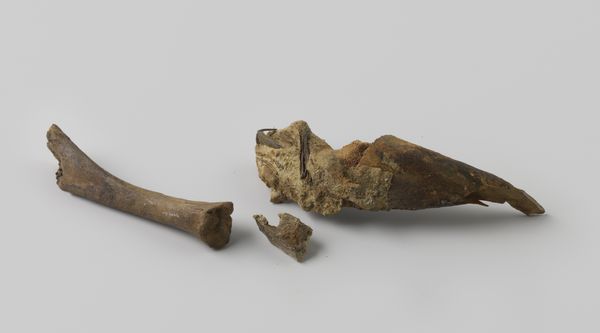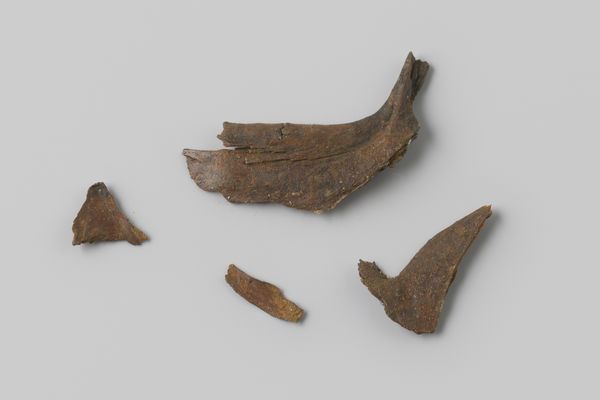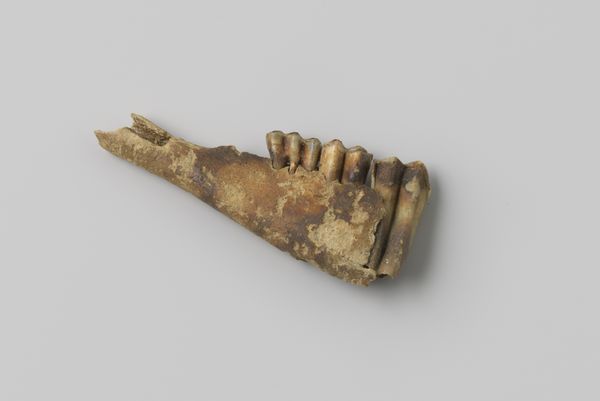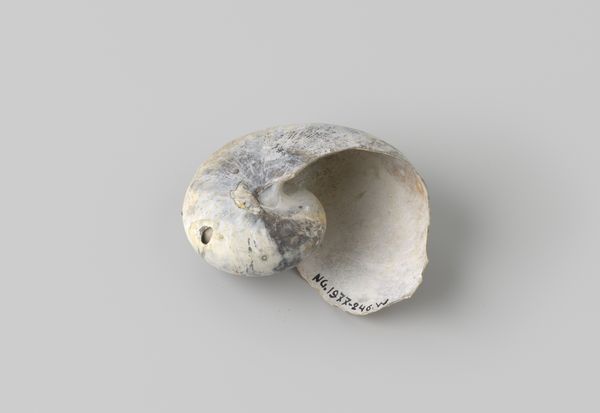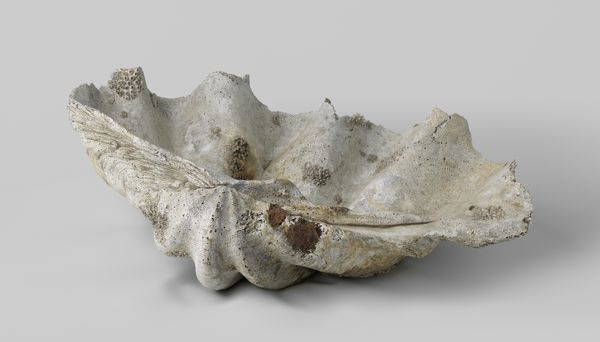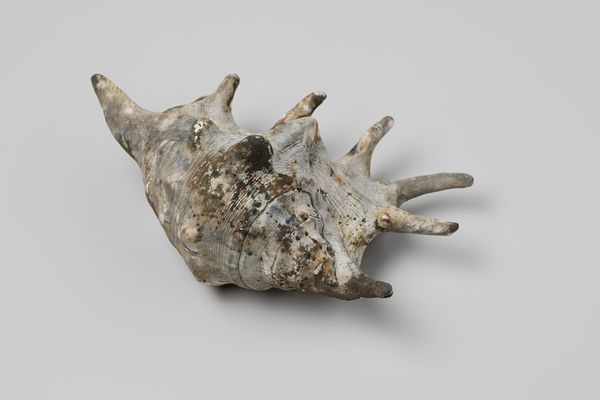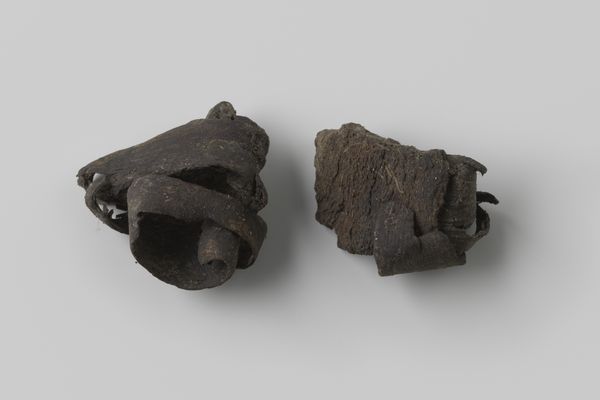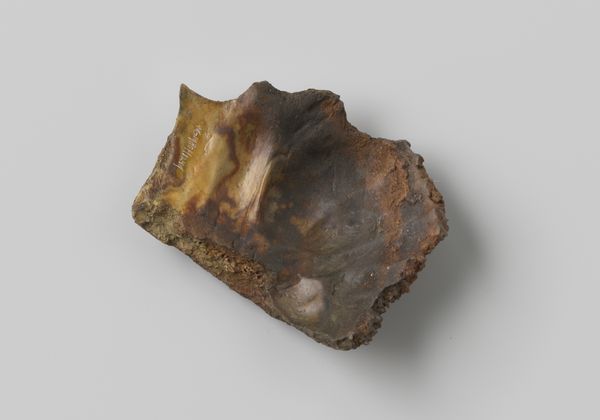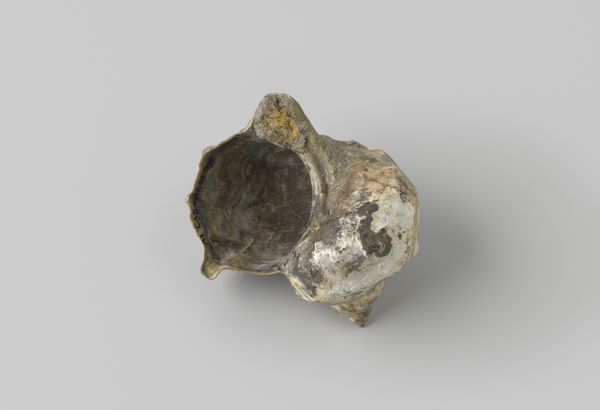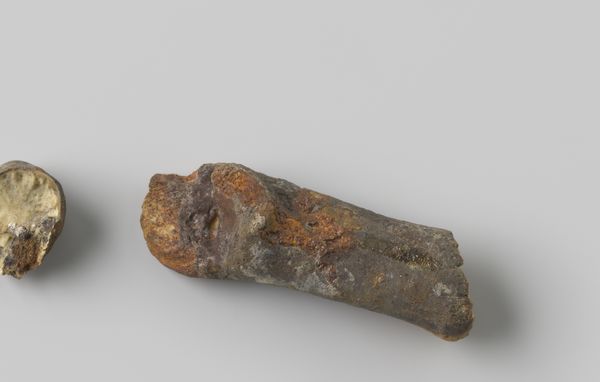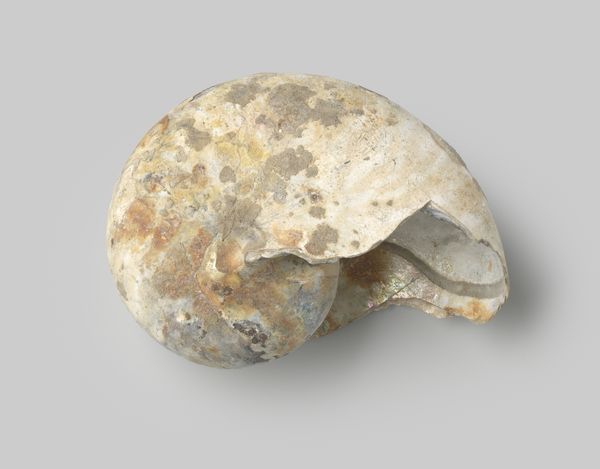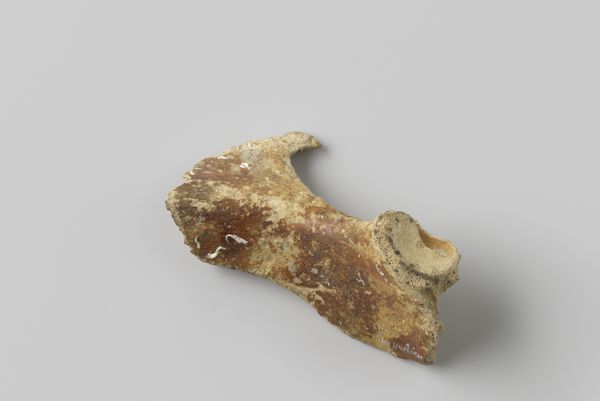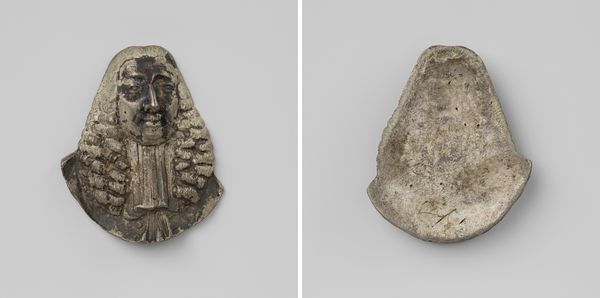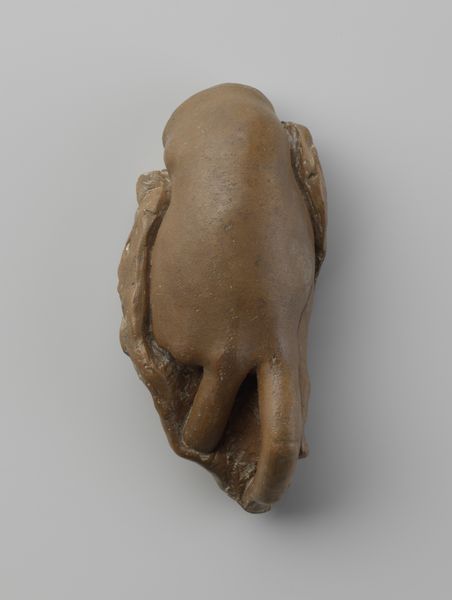
Fragment bovenkaak met tanden van een mens en brok concretie uit het wrak van de Oost-Indiëvaarder Hollandia before 1748
0:00
0:00
nietvantoepassing
Rijksmuseum
found-object
#
portrait
#
found-object
#
history-painting
Dimensions: height 2.8 cm, width 5.2 cm, depth 1.2 cm, height 4 cm, width 3.5 cm, depth 2.7 cm
Copyright: Rijks Museum: Open Domain
This fragment of an upper jaw with teeth, alongside a piece of concretion, comes from the wreck of the Dutch East India Company ship, the Hollandia. The Hollandia sank in 1743 off the Isles of Scilly, a stark reminder of the human cost of the 18th-century spice trade. The Dutch East India Company, or VOC, was a powerful entity, wielding immense economic and political influence. It monopolized trade routes, exploited resources, and colonized territories, all in the name of profit. This jawbone speaks silently of the many unknown individuals who risked their lives in pursuit of these colonial ventures. Examining the material culture of shipwrecks like the Hollandia allows historians to reconstruct the lives of ordinary sailors, merchants, and others involved in this complex history. Archaeological records, ship manifests, and company archives can shed light on the social conditions that fueled the VOC's expansion, but objects like these also remind us of its human toll.
Comments
No comments
Be the first to comment and join the conversation on the ultimate creative platform.
